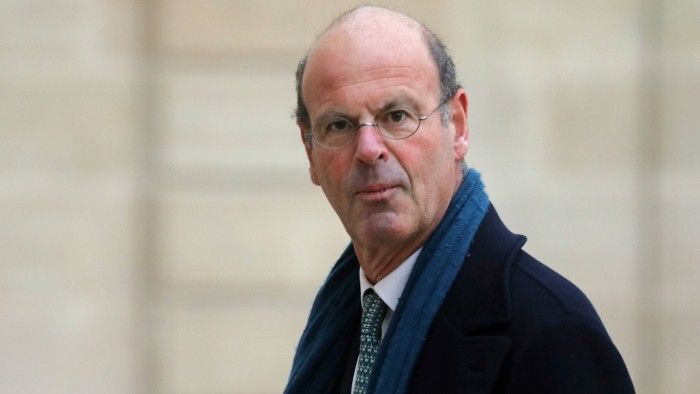Unlock the Editor’s Digest for free
Roula Khalaf, Editor of the FT, selects her favourite stories in this weekly newsletter.
France’s new prime minister François Bayrou has selected Eric Lombard, head of state-backed financial group Caisse des Dépôts, as finance minister, handing him the key role of trying to enact a budget for next year.
Lombard will be tasked with coming up with a tax and spending plan for 2025 that can be approved by France’s raucous hung parliament, while also starting to repair’s the country’s degraded public finances.
Bayrou’s predecessor, Michel Barnier, was ousted by the national assembly in a vote of no confidence earlier this month because of opposition from leftwing and far-right political parties to his deficit-cutting budget.
Members of Bayrou’s cabinet were unveiled on Monday night after days of wrangling between him and President Emmanuel Macron, who officially names the ministers after recommendations from the premier.
Macron and Bayrou are under pressure to end political turmoil in France by creating a government that can survive and pass key measures in the divided parliament.
France is on its fourth prime minister this year, an unprecedented level of churn in France’s Fifth Republic, which was founded in 1958.
Barnier’s administration only lasted three months, making him the shortest-serving head of government.
Far-right leader Marine Le Pen, who played a decisive role in removing Barnier, is likely to have a big influence on whether Bayrou can succeed since her Rassemblement National party is the biggest in the National Assembly.
Brussels and financial markets have been scrutinising France to see if it can begin to reduce its deficit, which ballooned to about 6 per cent of national output this year, far above the EU limit of 3 per cent.
Bayrou, who leads the small MoDem party that has been allied with Macron’s centrist bloc in parliament since 2017, does not have enough votes to pass a budget.
If Bayrou seeks to override lawmakers and invoke a clause in France’s constitution to pass the budget, as Barnier did, he will be vulnerable to another no-confidence vote.
A stop-gap emergency budget was approved by parliament last week to avoid a shutdown of government services in January.
Lombard, a 66-year-old former banker, has since 2017 led Caisse des Dépôts, which makes long-term investments in public housing, infrastructure and green projects.
On defence and international diplomacy, which are considered the domain of the president and not the prime minister, Macron has chosen continuity by keeping on loyalist Sébastien Lecornu as minister of the armies and Jean-Noël Barrot as minister of foreign affairs. Both served in Barnier’s government.
Bruno Retailleau, a rightwinger who made his mark as interior minister with tough talk on immigration and crime in Barnier’s administration, has also been retained in his existing brief.
Former premier Élisabeth Borne, also from Macron’s centrist camp, will return as education minister.
